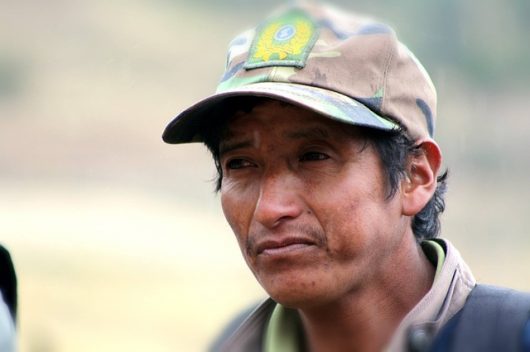Finally Free: Poverty and Inequality in Bolivia
 In 2009, poverty and inequality in Bolivia were some of the highest in South America. Extreme poverty rates were roughly 40 percent and the poorest 10 percent received only 0.5 percent of the total national income.
In 2009, poverty and inequality in Bolivia were some of the highest in South America. Extreme poverty rates were roughly 40 percent and the poorest 10 percent received only 0.5 percent of the total national income.
There was a sharp turnaround between 2004 and 2014, according to the World Bank. Economic growth averaged 4.9 percent annually, moderate poverty rates dropped from 59 to 39 percent, and inequality plummeted. Poverty and inequality in Bolivia began to wane.
Fighting Poverty and Inequality in Bolivia
It was not until 2006, a year after the election of Evo Morales, the country’s first indigenous president, that government commitment to economic growth and poverty reduction began to drastically improve. Morales increased spending on health, education, and poverty reduction programs by 45 percent between 2005 and 2006.
On July 22nd, 2017, President Evo Morales declared Bolivia completely independent from the World Bank and International Monetary Fund. Spurring this independence are the improvements achieved by Morales’s government. Since his election, inflation has run below four percent each year, basic consumption goods have been at a surplus, extreme poverty has fallen to 17 percent and the richest 10 percent of the country, which used to earn 128 times more than the poorest, now only earns about 38 times as much.
What’s more, as Francisco Toro writes, “Bolivia was running budget surpluses every year between 2006 and 2014. This allowed it to draw down the public sector’s debt, which fell from 83 percent of GDP in 2003 to just 26 percent in 2014, even as Bolivia built up its international reserves dramatically, from $1.7 billion in 2005 to $15.1 billion at the end of the boom in 2014.”
Much of this had to do with the burgeoning natural resources in the country. Export revenue, in the decade following the appointment of Morales, grew by six percent contributing to the impressive reduction of poverty an inequality in Bolivia.
Independence from the World Bank and IMF marks a new era for Bolivia. Its unprecedented economic improvements and reduction of poverty and inequality are a victory for the fight against poverty. The question is, will the world follow suit?
– Joseph Dover
Photo: Pixabay
